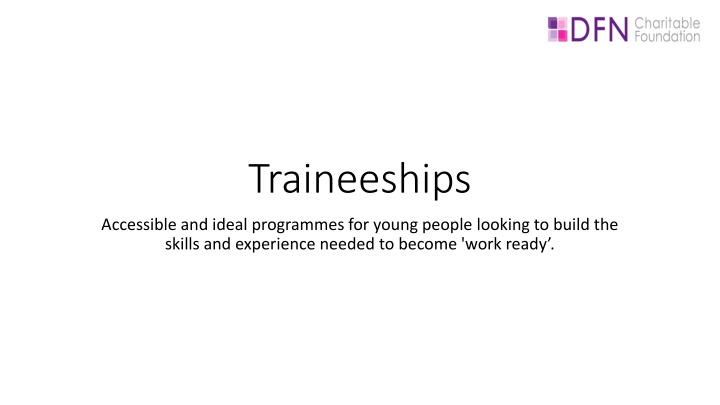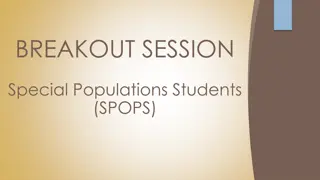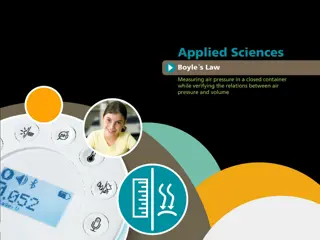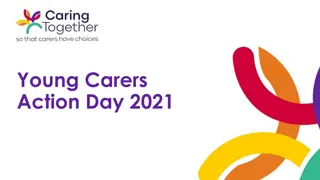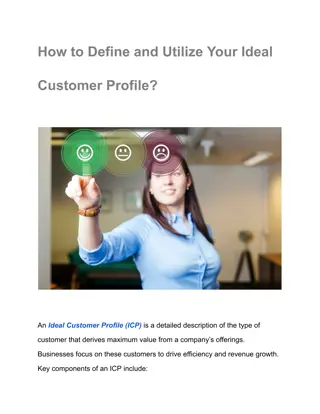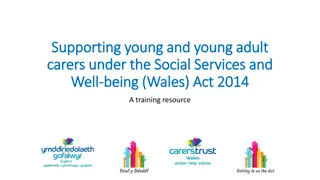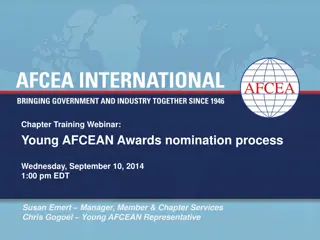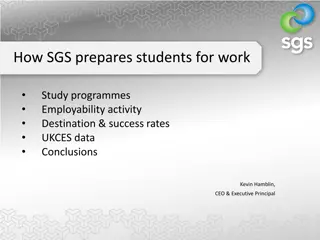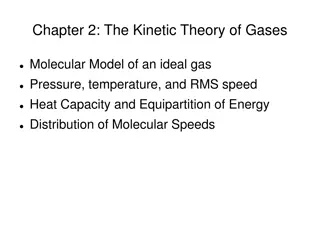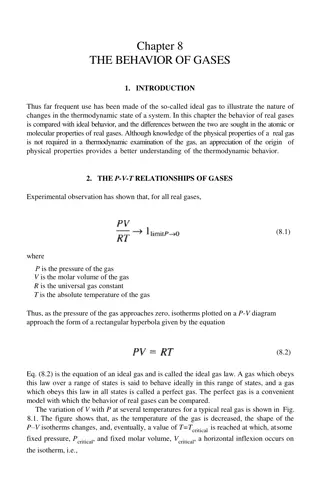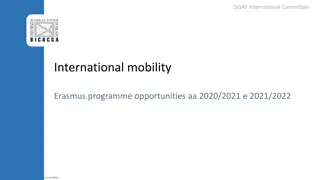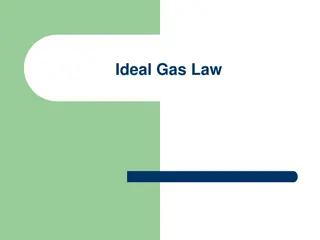Exploring Traineeships: Ideal Programs for Young Individuals
Traineeships offer education and training with work experience, targeting individuals aged 16-24 to become work-ready. Through placements, training, and support in areas like English and Maths, traineeships prepare candidates for apprenticeships or entry-level positions. Discover the benefits, including tailored training, and the pathway to apprenticeships or employment.
Uploaded on Oct 09, 2024 | 1 Views
Download Presentation

Please find below an Image/Link to download the presentation.
The content on the website is provided AS IS for your information and personal use only. It may not be sold, licensed, or shared on other websites without obtaining consent from the author.If you encounter any issues during the download, it is possible that the publisher has removed the file from their server.
You are allowed to download the files provided on this website for personal or commercial use, subject to the condition that they are used lawfully. All files are the property of their respective owners.
The content on the website is provided AS IS for your information and personal use only. It may not be sold, licensed, or shared on other websites without obtaining consent from the author.
E N D
Presentation Transcript
Traineeships Accessible and ideal programmes for young people looking to build the skills and experience needed to become 'work ready .
What is a Traineeship? Traineeships are education and training programmes with work experience, designed to get young people (aged 16-24) work ready. Sometimes people take traineeships to help them get prepared for an apprenticeship. A traineeship often provides: a high-quality work experience placement with an employer work preparation training, provided by the training organisation English and Maths support, if required, provided by the training organisation. Traineeships last up to a maximum of 6 months. https://www.mencap.org.uk/advice-and-support/children-and-young- people/further-education
Traineeships: an overview for young people Traineeships are an ideal opportunity for young people, aged 16 to 24, who are motivated to get a job but lack the skills and experience that employers are looking for. Those who have been unsuccessful when applying for an apprenticeship or other position due to a lack of skills and experience are most likely be good candidates for a traineeship. Traineeship opportunities are advertised regularly on find a traineeship.
Why do a Traineeship? Students will learn what s expected of them in the workplace, and develop links with local employers. The work placement element of the traineeship will help to broaden students CV for when they apply for future positions. If the host company is looking for apprentices or employees, students are in an advantageous position having worked for the company already. Students will be trained in other relevant areas to help them get work- ready, such as job search and interview skills, time-keeping and team working. One unique aspect to the traineeship option is that it allows for flexibility: employers and mentors will tailor the training to individual requirements, so learners get the most out of the time they spend doing their traineeship.
English and Maths on a Traineeship All young people undertaking a traineeship are required to study English and Maths unless they have already achieved a GCSE at A*-C in those subjects or, for those 19 or above, a functional skills qualification at Level 2. Young people aged 16 to 19 taking part in a traineeship are expected to continue to work towards achieving a GCSE A*- C, taking functional skills as stepping stone qualifications. Where taught, English and Maths should build on the level of the qualification already achieved, so a student who has achieved a GCSE Grade D or a Level 1 qualification should be taught at Level 2 rather than Level 1, for example.
What happens at the end of a Traineeship? The aim of a traineeship is to help a young person move into an apprenticeship or employment, so ideally a person will become employed or become an apprentice after completing their traineeship. At the end of a traineeship, if there is a job or apprenticeship vacancy with the work placement host, the learner should receive an interview. If there isn t a job or apprenticeship opportunity at that time, they will receive an exit interview with the employer who provided the work placement. In this interview, the learners can discuss what they ve learned, and how it might help them with things like updating their CV and getting into a job or an apprenticeship. Find out more about applying for a traineeship here. https://www.allaboutschoolleavers.co.uk/articles/article/210/why-do-a- traineeship
Who can apply? People can apply if they are: eligible to work in England unemployed and have little or no work experience aged 16 to 24 and qualified below Level 3 Traineeships are unpaid, but learners may be given expenses for things like travel and meals.
How to apply for a Traineeship Go to GOV.UK Find a traineeship: https://www.findapprenticeship.service.gov.uk/traineeshipsearch?_ga=2.130949451.576848161.1592950702- 1554956853.1587965258
